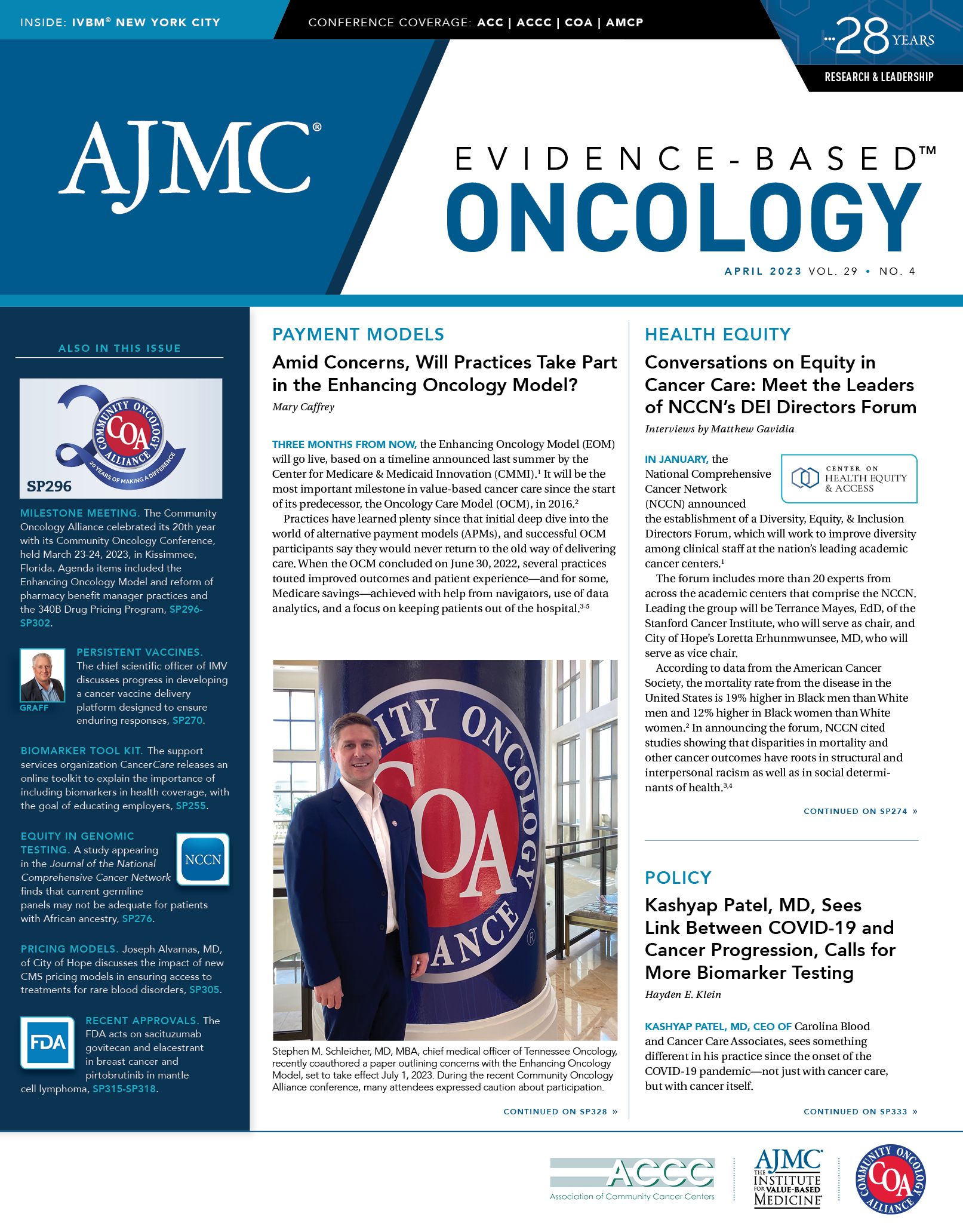- Center on Health Equity & Access
- Clinical
- Health Care Cost
- Health Care Delivery
- Insurance
- Policy
- Technology
- Value-Based Care
Axi-Cel Improves Overall Survival vs Standard-of-Care Initial Treatment for R/R LBCL
A prespecified overall survival analysis of the phase 3 ZUMA-7 trial found that axicabtagene ciloleucel (axi-cel) led to better outcomes vs the historical standard of care for relapsed or refractory large B-cell lymphoma (R/R LBCL).
Axicabtagene ciloleucel (axi-cel; Yescarta) showed a statistically significant overall survival (OS) improvement compared with standard-of-care (SOC) initial treatment for relapsed or refractory large B-cell lymphoma (R/R LBCL) in the landmark ZUMA-7 study, Kite Pharma today announced in a press release.1
The phase 3 ZUMA-7 trial is a randomized, open-label, multicenter, international study considered to be the largest phase 3 study of any chimeric antigen receptor (CAR) T-cell therapy, according to the release. The trial has also shown axi-cel to produce an event-free survival (EFS) improvement over historical SOC therapy—the main end point in the trial.
In the prespecified OS analysis, the axi-cel cohort showed a 2.5-fold increase in patients who were alive, did not experience disease progression, and did not need additional cancer treatment at 2 years. The median EFS in the axi-cel cohort was 8.3 months compared with 2 months in the SOC group.
Additionally, more patients responded to axi-cel (83%) vs SOC (50%), and more patients achieved complete response with axi-cel (65%) vs SOC (32%). More than half of patients randomized to the SOC group later received axi-cel off study.
The full results of the analysis will be presented at a meeting later in the year.
Historically, the SOC for R/R LBCL that occurs within 12 months of first-line therapy includes a platinum-based salvage combination chemoimmunotherapy regimen, followed by high-dose therapy, then autologous stem cell transplant in patients whose disease responds to salvage chemotherapy.
The ZUMA-7 study randomized 359 patients at 77 centers 1:1 to receive either a single dose of axi-cel or SOC therapy for R/R LBCL.2 OS, defined as the time from randomization to all-cause mortality, was prespecified as a clinically important secondary end point that would be analyzed either after 210 deaths or no later than 5 years after the first patient was randomized.
The new findings make axi-cel the first and only treatment in almost 3 decades to demonstrate a statistically significant OS improvement vs SOC therapy in R/R LBCL, according to the release. The news release also noted that in the ZUMA-7 study, patients in the axi-cel arm did not receive bridging chemotherapy prior to CAR T-cell therapy that could affect the results, and the study did not identify any new safety signals with axi-cel.
The trial was conducted under a Special Protocol Assessment, meaning the FDA agreed with the clinical end points and prespecified statistical analyses in the study. Data from ZUMA-7 were also the basis of axi-cel’s FDA approval as a second-line therapy for LBCL in 2022.3
References
1. Kite’s Yescarta CAR T-cell therapy demonstrates a statistically significant improvement in overall survival for initial treatment of relapsed/refractory large B-cell lymphoma. News release. Kite. March 21, 2023. Accessed March 21, 2023. https://www.kitepharma.com/news/press-releases/2023/3/kites-yescarta-car-t-cell-therapy-demonstrates-a-statistically-significant-improvement-in-overall-survival-for-initial-treatment-of-relapsedrefract
2. Efficacy of axicabtagene ciloleucel compared to standard of care therapy in subjects with relapsed/refractory diffuse large B cell lymphoma (ZUMA-7). ClinicalTrials.gov. Updated February 3, 2023. Accessed March 21, 2023. https://clinicaltrials.gov/ct2/show/NCT03391466
3. FDA approves axicabtagene ciloleucel for second-line treatment of large B-cell lymphoma. News release. FDA. April 1, 2022. Accessed March 21, 2023. https://www.fda.gov/drugs/resources-information-approved-drugs/fda-approves-axicabtagene-ciloleucel-second-line-treatment-large-b-cell-lymphoma

